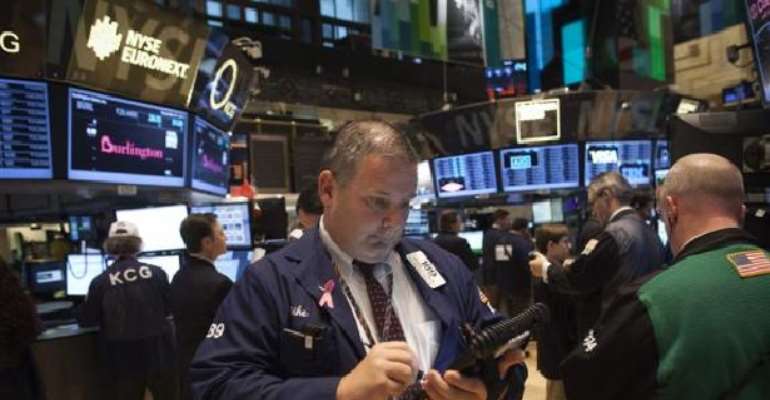Shares Fall, Euro At 2014 High On Euro Zone Inflation

European stocks reversed course and fell on Friday, and the euro rose to its highest level this year after an unchanged reading of euro zone inflation cooled growing expectations the European Central Bank could ease monetary policy as early as next week.
The "flash" estimate of annual consumer price inflation in February was 0.
8 percent, wrong-footing economists who had anticipated a slip closer to deflationary territory with a consensus forecast of 0.
7 percent.
The dimming prospect of an interest rate cut from the ECB as early as its next policy meeting next week hit banking stocks hard, pushed the euro above $1.
38 and lifted government bond yields from their lows earlier in the session.
This took the shine off stocks, which had also drawn support earlier in the day from the record high close on Wall Street the previous session following what were deemed market-friendly comments from Federal Reserve Chair Janet Yellen.
Instead, investors pointed to the political unrest in Ukraine as another excuse to retreat and lock in profits on the last day of what has been a profitable month.
"There could be some disappointment on the basis that the ECB could step back from any action that it could have been considering next week to see how things pan out," said Keith Bowman, equity analyst at Hargreaves Lansdown.
"There are still a lot of nerves in the background, particularly with regard to the geopolitical situation (in Ukraine).
But the market does seem to be seeing good support and with every dip in prices, buyers are coming in," he said.
At 6.
30 a.
m.
ET the FTSEurofirst 300 index .
FTEU3 was down 0.
41 percent at 1,339.
88 points, having traded in positive territory up until the inflation data release.
The index is on track for a gain of 4 percent in February.
In Asia, MSCI's broadest index of Asia-Pacific shares outside Japan .
MIAPJ0000PUS rose a slender 0.
19 percent for a 4 percent gain on the month.
Tokyo's Nikkei stock average .
N225 skidded 0.
5 percent.
The euro was 0.
6 percent higher on the day at $1.
38, reaching that level for the first time this year, while the dollar pared its losses against the Japanese yen to 101.
90 yen.
CHINA AND UKRAINE Currency traders also digested large moves in China's yuan, which posted its biggest weekly loss in two decades as the central bank ramped up its intervention to weaken the currency ahead of a key government meeting.
"Some are wondering whether the PBoC (People's Bank of China) will step in to stabilize the yuan, but reports have been suggesting that the central bank is indeed trying to shake out speculators who have put on the renminbi carry trade," Deutsche Bank strategists wrote in a note on Friday.
Aside from the euro zone inflation figures, the increasingly unstable situation in Ukraine was the main focus for investors on Friday.
Armed men stormed the regional parliament and seized the airport in a mainly ethnic Russian region, Ukraine's acting president dismissed the head of the armed forces general staff, and the central bank imposed caps on the withdrawal of foreign currency from the country's banks.
The unrest prompted investors to seek the safety of U.
S.
Treasuries, pushing yields to more than three-week lows in Asia of 2.
638 percent.
That had risen to 2.
67 percent after the euro zone inflation data, however.
"Ukraine is a political risk.
As long as the markets are convinced that Russia is not going to take a hard stance on the issue, it is something to watch but not a game changer," said Philippe Gijsels, head of research at BNP Paribas Fortis Global Markets in Brussels.
REUTERS
